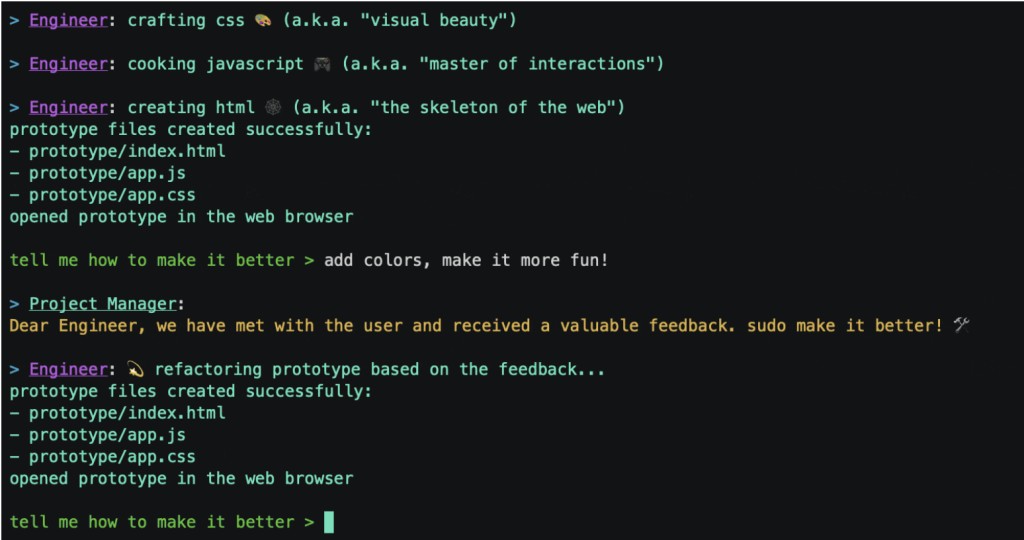Rapidly converting conceptual ideas into tangible, interactive prototypes is a common challenge faced by developers, project managers, and business owners alike. The process often requires extensive programming knowledge and can be time-consuming, making it difficult for non-technical stakeholders to participate actively in the initial stages of software development. This gap can lead to misunderstandings and misaligned expectations about the final product, creating a need for a more streamlined, accessible approach.
Traditionally, the solution to this problem has involved detailed requirement gathering followed by manual coding by experienced developers. Tools like integrated development environments (IDEs) and various software development kits (SDKs) have aided developers in this task. However, they require significant coding expertise and only sometimes speed up the initial prototyping phase. This approach can be inefficient and daunting for those who need a technical background, highlighting the need for a more inclusive and faster tool.
Jemma is a new AI project that enables the quick transformation of ideas into web-based prototypes without requiring users to write code themselves. It utilizes a combination of AI-driven project management and development to take a simple idea or a text file of requirements and automatically generate a prototype. This process involves AI agents acting as project managers, business owners, and engineers collaborating to interpret the idea, create requirements, and build the prototype.
Jemma demonstrates its capabilities in enhancing productivity and inclusivity in the prototype development process. It significantly reduces the time taken from idea conception to prototype, making it possible to see a functional demo in a fraction of the time it would typically take. This rapid prototyping facilitates quicker feedback loops and allows non-technical stakeholders to engage more actively in the development process, ensuring that the final product aligns more closely with the original vision.
In conclusion, Jemma is poised to transform the software development landscape by democratizing the initial stages of creation. Bridging the gap between conceptual ideas and functional prototypes enables a broader range of individuals to participate in the development process, ultimately leading to more innovative and fine-tuned products. Its ability to rapidly convert ideas into prototypes is an invaluable asset in today’s digital environment, making it a key player in the future of software development.
The post Jemma: A New AI Project that Convert Your Thoughts to Code appeared first on MarkTechPost.
Source: Read MoreÂ



